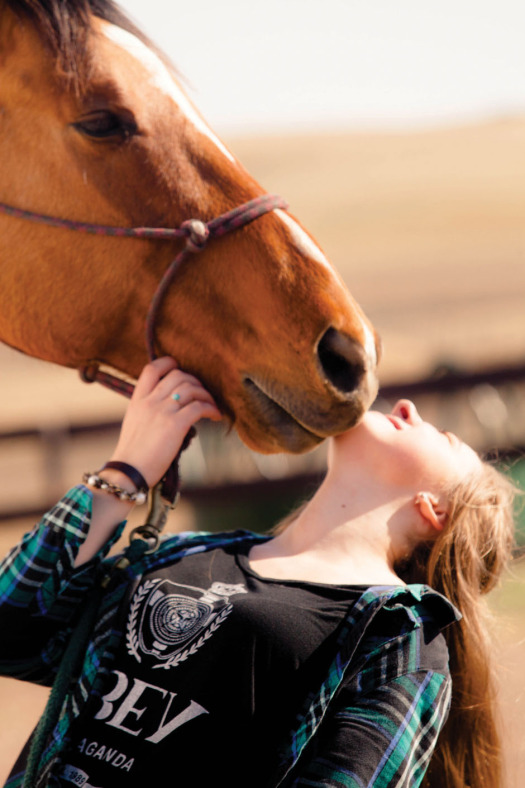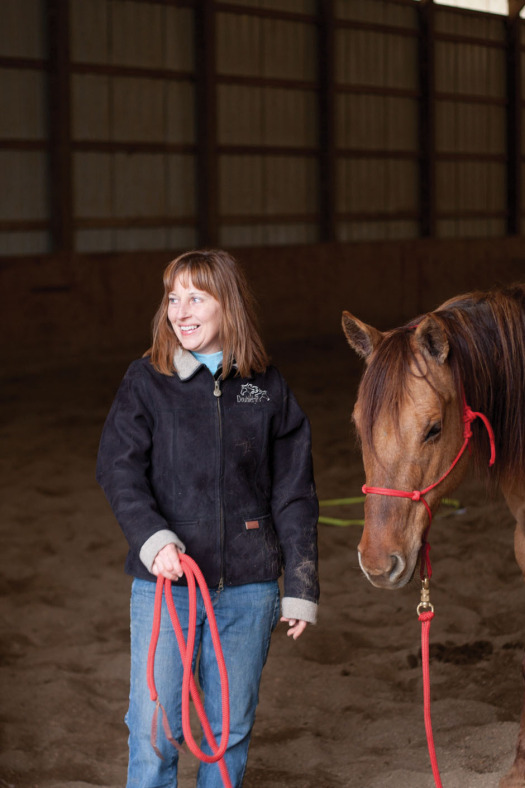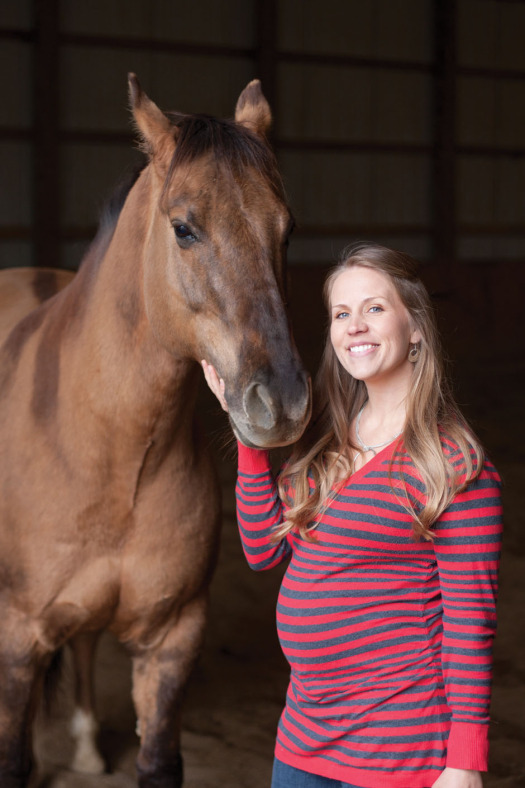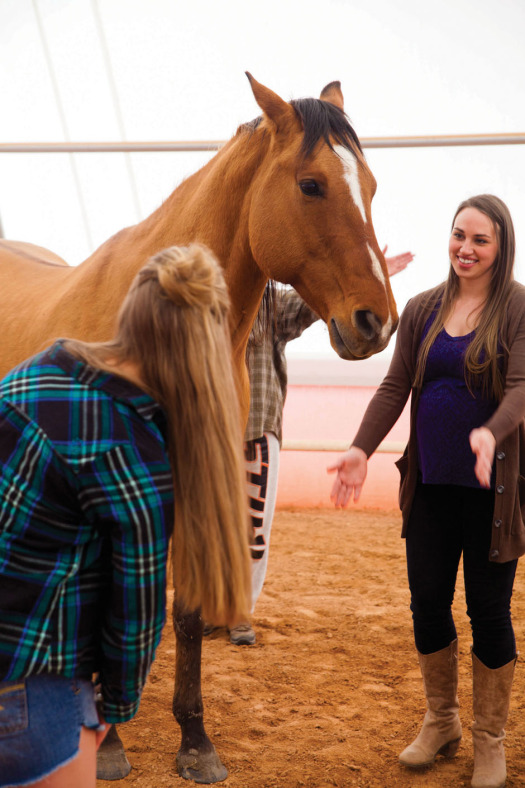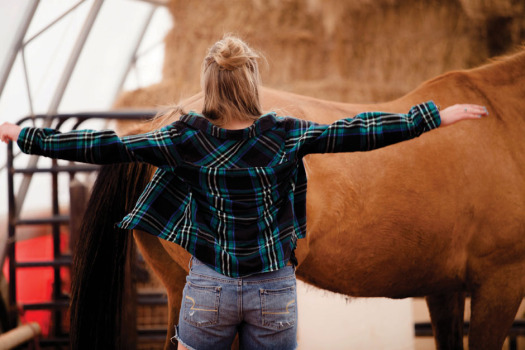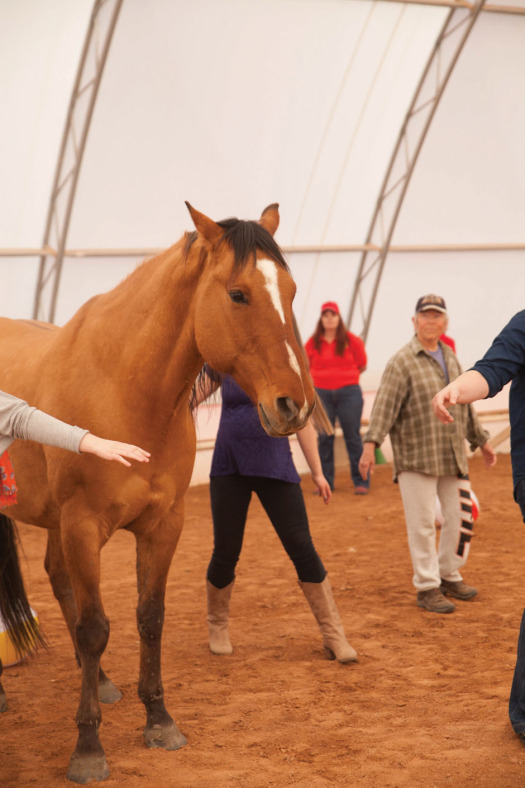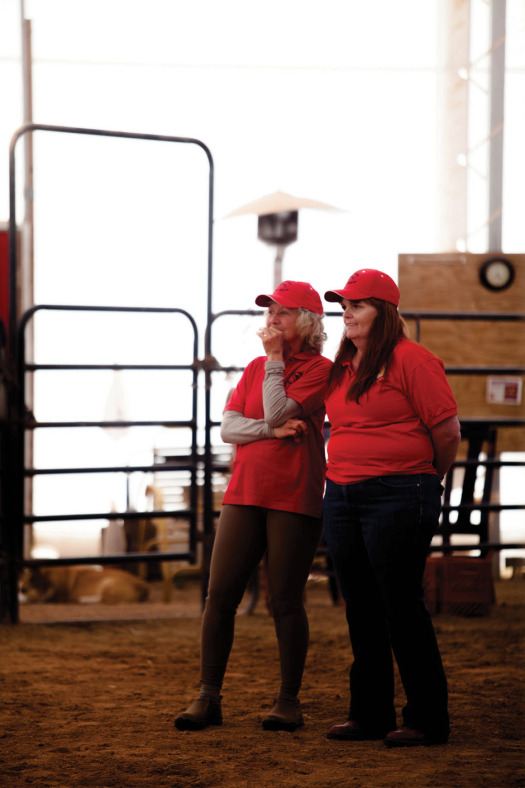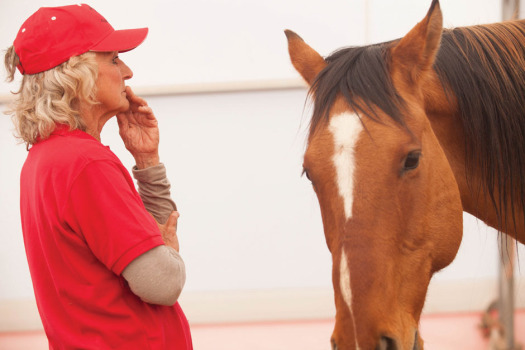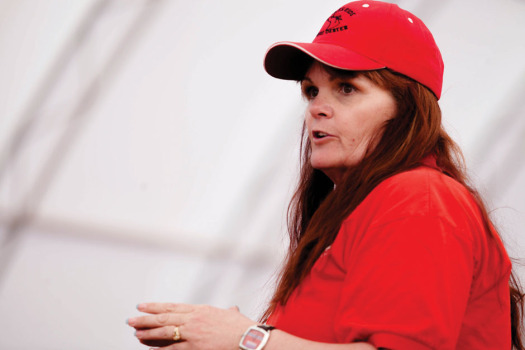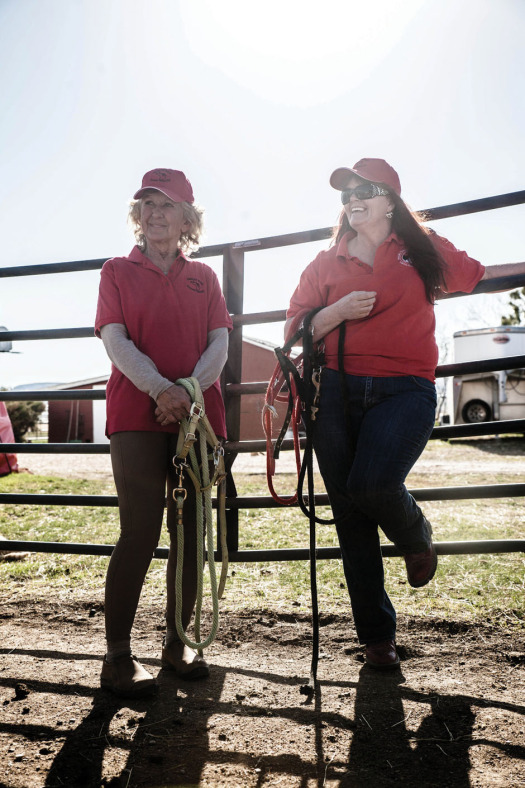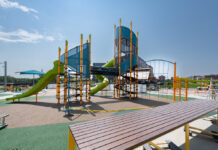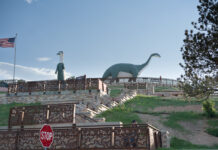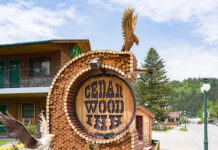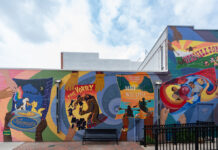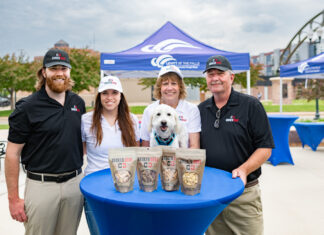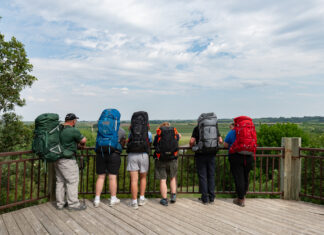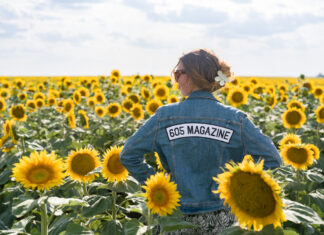By Leah Vanden Bosch
Eagle’s Ride Photos by Bonny Fleming of Asio Studio
Double HP Photos by 605 Staff
Horses and their graceful presence are commonly associated with sport and riding, but now, more and more people are paying attention to their ability to heal. Double HP Sanctuary and Learning Center and Eagle’s Ride Equine Center are two South Dakota facilities recognizing that ability.
In addition to sportsmanship programs, both centers are shifting focus toward utilizing horses’ natural healing talent through equine assisted therapy. Each center’s owner has teamed up with a certified therapist to create a program focused on emotional growth and learning. The passion and genuine interest of these four South Dakota women is helping to reinvent the way we look at mental health therapy, and bringing to light how lives can change with the help of horses.
Darci Hortness is the owner and manager of Double HP in Crooks. With over 30 years of experience in training, natural horsemanship and rescue, Hortness wants to emphasis the ways in which horses can benefit people. After working with law enforcement on rescues for many years, Hortness experienced much grief and heartache, and was ready to put her focus back on enjoying the animals.
“Horses have a natural ability to find balance and harmony with one another,” explained Hortness. “Someone who is hurting can find healing in that ability by experiencing it and discovering ways it can be applied in their own life.”
With that in mind, Hortness looked to EAGALA for the qualifications she would need. EAGALA (Equine Assisted Growth and Learning Association), is the leading international nonprofit group for professionals using equine therapy to address human development and mental health issues. With over 600 EAGALA programs in 50 countries, the belief that horses can positively impact a person’s mental health and well-being has rapidly spread. Incorporating specific guidelines and their code of ethics, horse professionals and mental health therapists go through extensive training in order to become EAGALA certified. Hortness earned the qualifications she needed as a horsemanship facilitator through her EAGALA training, but in order to be able to provide equine assisted therapy at Double HP, she would need to collaborate with a licensed mental health professional.
A naturally hands-on personality and active lifestyle inspired licensed therapist Carissa Palmberg’s to take her practice outside of office walls. Palmberg was introduced to equine therapy with her first job at a wilderness camp, where she discovered the benefits of working with the majestic animals. Her involvement in the unconventional method resulted in more breakthroughs than Palmberg had ever witnessed with traditional talk therapy. She became EAGALA certified, hoping to bring that experience into her own profession.
Palmberg’s proximity to Crooks in nearby Sioux Falls led her to Hortness. Without a rigid, corporate structure and confines of office walls, they have created an equine assisted therapy program purposed for a diverse audience.
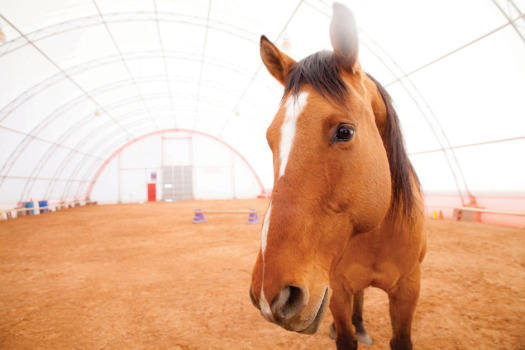
 Though horses are the focus of the session, there is no need to have experience, or even interest, in order to benefit from working with them. Neither riding nor horsemanship activities are involved in equine therapy. Instead, clients are given a task to do – often something as simple as leading the horse through a marked path. Both Hortness and Palmberg are required to be present at each session. The horse specialist watching over the horses, while the mental health therapist guides each client through the tasks. The professionals point out behaviors and patterns the horses exude while completing each task, with the clients being asked to reflect on metaphors it may represent from their own life.
Though horses are the focus of the session, there is no need to have experience, or even interest, in order to benefit from working with them. Neither riding nor horsemanship activities are involved in equine therapy. Instead, clients are given a task to do – often something as simple as leading the horse through a marked path. Both Hortness and Palmberg are required to be present at each session. The horse specialist watching over the horses, while the mental health therapist guides each client through the tasks. The professionals point out behaviors and patterns the horses exude while completing each task, with the clients being asked to reflect on metaphors it may represent from their own life.
“The horses are the most important element,” said Palmberg. “They can pick up on 100 percent of the nonverbal communication in the room. They seem to understand what’s really going on inside of the person. They respond to it, we note it objectively, and the client is able to reflect on that.”
At the end of each session, clients are given time to reflect, but Palmberg doesn’t encourage them to process the meaning too much. “We don’t have to talk it all out – that’s the power of the style. As the facilitators, we don’t need to know everything about their metaphor. We want the client to be able to work through it throughout their week and process their healing naturally.”
That natural healing is still a new concept for the Sioux Falls area, but practicing equine assisted therapy has become second nature at Eagles Ride, which is located near Rapid City in Piedmont.
Opening the center at its current location 11 years ago, owner and facilitator Judi Joba became interested in equine assisted therapy after experiencing grief and struggle of her own. She attended an EAGALA training program, which transformed her life – along with the way she saw horses. In 2003, Joba began working with EAGALA-trained mental health professionals, conducting equine assisted therapy sessions in addition to the riding lessons and Horse Wisdom Workshops featured at Eagles Ride.
Joba’s current colleague shares her passion for the healing power of horses. Bridget Williams recently began working with Joba after they were connected by a mutual friend.
Just as Joba’s personal experiences led her to equine assisted therapy, Williams says there were times she doesn’t think she would have survived without the help of horses. “They are extremely sensitive animals and they pick up on whatever it is we carry into the arena. Sometimes there are things that we aren’t even consciously aware of that are driving our behaviors. Things we are too ashamed to speak to others about. Horses naturally bring that out of us and start the healing process.”
Read the full article in the May issue of 605 Magazine or here.



